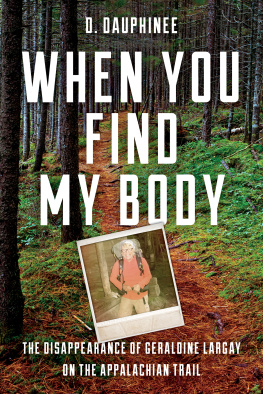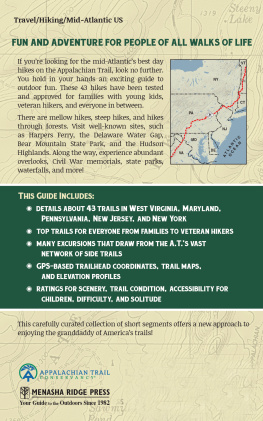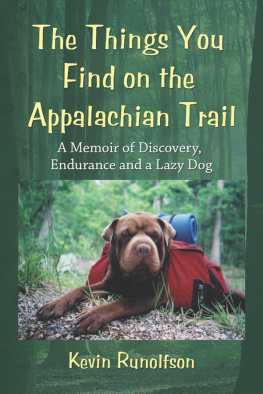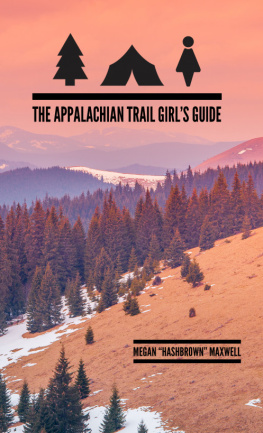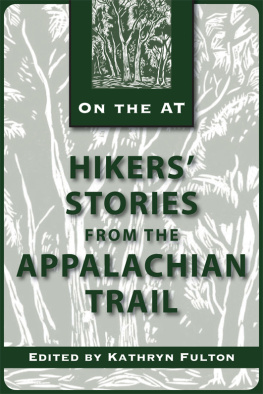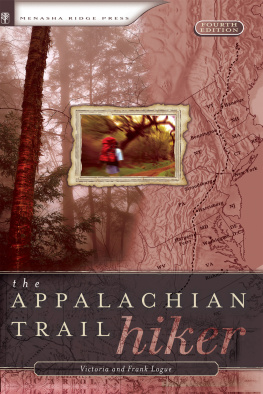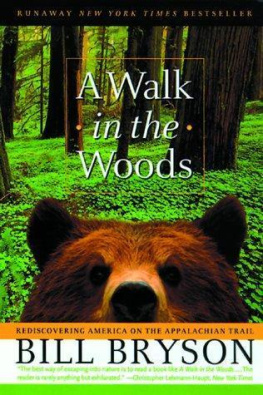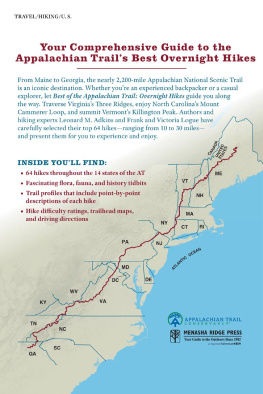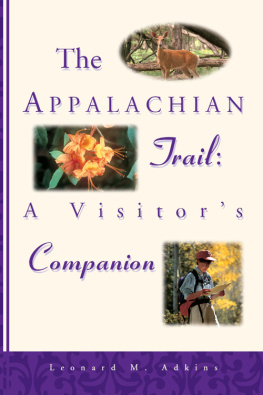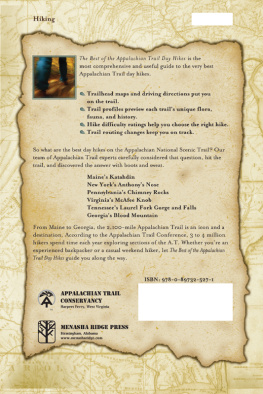D. Dauphinee - When You Find My Body: The Disappearance of Geraldine Largay on the Appalachian Trail
Here you can read online D. Dauphinee - When You Find My Body: The Disappearance of Geraldine Largay on the Appalachian Trail full text of the book (entire story) in english for free. Download pdf and epub, get meaning, cover and reviews about this ebook. year: 2019, genre: Non-fiction / History. Description of the work, (preface) as well as reviews are available. Best literature library LitArk.com created for fans of good reading and offers a wide selection of genres:
Romance novel
Science fiction
Adventure
Detective
Science
History
Home and family
Prose
Art
Politics
Computer
Non-fiction
Religion
Business
Children
Humor
Choose a favorite category and find really read worthwhile books. Enjoy immersion in the world of imagination, feel the emotions of the characters or learn something new for yourself, make an fascinating discovery.
- Book:When You Find My Body: The Disappearance of Geraldine Largay on the Appalachian Trail
- Author:
- Genre:
- Year:2019
- Rating:4 / 5
- Favourites:Add to favourites
- Your mark:
- 80
- 1
- 2
- 3
- 4
- 5
When You Find My Body: The Disappearance of Geraldine Largay on the Appalachian Trail: summary, description and annotation
We offer to read an annotation, description, summary or preface (depends on what the author of the book "When You Find My Body: The Disappearance of Geraldine Largay on the Appalachian Trail" wrote himself). If you haven't found the necessary information about the book — write in the comments, we will try to find it.
D. Dauphinee: author's other books
Who wrote When You Find My Body: The Disappearance of Geraldine Largay on the Appalachian Trail? Find out the surname, the name of the author of the book and a list of all author's works by series.
When You Find My Body: The Disappearance of Geraldine Largay on the Appalachian Trail — read online for free the complete book (whole text) full work
Below is the text of the book, divided by pages. System saving the place of the last page read, allows you to conveniently read the book "When You Find My Body: The Disappearance of Geraldine Largay on the Appalachian Trail" online for free, without having to search again every time where you left off. Put a bookmark, and you can go to the page where you finished reading at any time.
Font size:
Interval:
Bookmark:
When You Find My Body
When You Find My Body
The Disappearance of Geraldine Largay on the Appalachian Trail
D. Dauphinee

Camden, Maine

An imprint of The Rowman & Littlefield Publishing Group, Inc.
4501 Forbes Blvd, Suite 200
Lanham, MD 20706
www.rowman.com
Distributed by NATIONAL BOOK NETWORK
Copyright 2019 by Denis Dauphinee
All rights reserved . No part of this book may be reproduced in any form or by any electronic or mechanical means, including information storage and retrieval systems, without written permission from the publisher, except by a reviewer who may quote passages in a review.
British Library Cataloguing in Publication Information available
Library of Congress Cataloging-in-Publication Data available
ISBN 978-1-60893-690-8 (hardcover)
ISBN 978-1-60893-691-5 (e-book)
 The paper used in this publication meets the minimum requirements of American National Standard for Information SciencesPermanence of Paper for Printed Library Materials, ANSI/NISO Z39.48-1992.
The paper used in this publication meets the minimum requirements of American National Standard for Information SciencesPermanence of Paper for Printed Library Materials, ANSI/NISO Z39.48-1992.
For Raymond Dauphinee Sr.,
who taught me what to do if ever I were lost in a wood
Authors Note
On October 14, 2015, on the eastern slopes of the four-thousand-foot Redington range, just north of the Appalachian Trail in Maine, two contractors were conducting an environmental survey on lands used by the US Navy for its Survival, Evasion, Resistance, and Escape school. Often referred to as the SERE school, the training takes place on a naval property whose southeastern border runs along a section of the Appalachian Trail and is separated only by a corridor of forest about five hundred feet wide.
It was eighty-six degrees that day, hot and humid. The surveyors were young and physically fit and were used to negotiating the steep ravines, the thick, burly cedars, the scrub spruce trees, and dwarf juniper that choke the many small brooks in the area. They were practised at cutting swaths through sections of brush that are so hard going that moose, deereven rabbitswalk around them. The topographers were cruising through the forest about 10:30 in the morning. At the top of a steep, rounded ridge, they sighted a transecta fixed path an observer can move along and count certain species of a study, such as plants or animals.
Once the transect line was established between two fixed points, the man operating the transit stepped backward to obtain a bearing, sighting between the two chosen points, like a golfer lining up a shot. On the third or fourth backward step, the young man stepped on something strangeit wasnt a stick. It wasnt a rock. The surveyor looked behind him. It was a collapsed tent. He stood, staring at the ground, analyzing the moment, when he called to his partner: I think I found that hiker.
They looked around. There, in the scanty shade of a hemlock tree, were the remains of a campsite. There was a small, flattened, black tent with a mustard-yellow rain fly. They inspected the site. Lying near the tent was a green backpack. Near the tent and backpack was a tattered sleeping bag.
The young surveyor peered closer. Inside the bag were some bones. They were unmistakably human.
For the discoverers, it was disconcerting. They collected themselves, snapped a photo of the site for the state police, and created a waypoint of the campsite on their GPS. It was a waypoint of despair. The remains were less than eight hundred yards from the Appalachian Trail.
To the west of the surveyors was the wrong direction home, leading deeper into the forest. To the east, a steep slope led fifty yards downhill to a boulder-strewn brook. They chose a route and made their way out of the dense woods and called their boss at the forest resource and management company they worked for, who called the state police.
DNA testing would later prove what everybody had suspected, and what the head of Maines official search-and-rescue team, Lieutenant Kevin Adam of the Maine Warden Service, had known to be true: the body on the knoll was that of Geraldine Gerry Largay, most recently from Georgia, who had gotten lost two years earlier when shed left the Appalachian Trail to relieve herself. She had walked off the trail to get out of sight, and, at some point, shed become disoriented. Had she been distracted by a lovely plant? Did she see an interesting bird? (Gerry loved birds and flora.) Whatever happened, shed gotten turned around and could not find her way.
Within forty-eight hours of her stepping off the trail, one of the largest, most challenging rescue efforts in the history of the state was under way. Gerry was lost.
In Maine, the warden service has a remarkable 98 percent success rate for finding people lost in the woods. Theyre good at it, and they pride themselves on it. During the extensive search in 2013 for Appalachian Trail hiker Geraldine Largay, it seemed the entire state of Maine was either emotionally or physically invested in her cause. I, too, was invested.
The book before you is less a biography than a reporting. Perhaps it is an homage. It is meant to celebrate not only Gerrys life but also her spirit of adventure, her yearning for lifelong scholarship, her will to pursue her dream, and her faith. I hope that it will illustrate her journeyand the journeys of those who tried to help her. This book will cover aspects of the Appalachian Trail, the many volunteer searchers, and the Maine Warden Service.
Though I have years of search-and-rescue, medical, wilderness, and expedition experience, I have tried throughout this book to minimize my own opinions and have drawn conclusions based on research from those involved closely with Gerrys ordeal, from testimony of some who knew her well, and from people she met on the trail.
Geraldine Largay was an extremely likeable woman. She seldom complained. Well into her sixties, when some people settle into complacency as they approach seventy, she possessed an insatiable desire for learning. Having never met Gerry, those traits, realized from conversations during my research, have endeared her to me.
Once she became lost in the forest, Gerrys saga was miserable. She was in the thick of it. Nature has the power to save people and to break hearts. There were mistakes made, which will be discussed, but its important for the reader to understand that for more than three months on the trail, in a difficult environment, and with the considerable help of her devoted husband, George, Gerry more than held her own. Some readers will regard her as simply someone who shouldnt have been hiking alone, and others will debate whether she should have acquired some woods sense in addition to her hiking experience. Others might call it a perfect storm of unfortunate events. My deductions, born of two years of research, are rather simple in the end and will be evident in the pages of this book. I invite readers to form their own opinions.
Appalachian Trail hikers have a tradition of adopting trail names. Please note that to avoid confusion, I have italicized each hikers trail name throughout this book.
D. Dauphinee, October 2018
Chapter Two
Trail Magic and Zero Days
Civilized life has kept me busy.
Terry Bliss ( Blue Moon ), 2013 (blog entry)
Its not worthwhile asking AT thru-hikers why theyre doing it. The answers never seem to offer any real clarity. You can seldom hear the tone of another persons soul, except through music or poetry, and typically the reasons a hiker attempts a thru-hike are intensely personal. I try not to ask thru-hikers the puerile question. Gerry Largay hiked the trail for the challenge and for the adventure of it all. Though she was in her mid-sixties, she had a youthful enthusiasm for learning and experiencing things, as one friend remembers. There is beauty in advanced age, just as there is in youth. Triumph over the challenges we face and absorbing the profound beauty in nature are some of the most wonderful experiences humans can have; Appalachian Trail hikers get both. Effervescence flows from those who enjoy life, those who smile as often as Gerry did and live with passion. Those are the people who light up the lives of others.
Next pageFont size:
Interval:
Bookmark:
Similar books «When You Find My Body: The Disappearance of Geraldine Largay on the Appalachian Trail»
Look at similar books to When You Find My Body: The Disappearance of Geraldine Largay on the Appalachian Trail. We have selected literature similar in name and meaning in the hope of providing readers with more options to find new, interesting, not yet read works.
Discussion, reviews of the book When You Find My Body: The Disappearance of Geraldine Largay on the Appalachian Trail and just readers' own opinions. Leave your comments, write what you think about the work, its meaning or the main characters. Specify what exactly you liked and what you didn't like, and why you think so.

